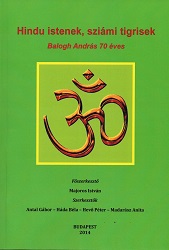
We kindly inform you that, as long as the subject affiliation of our 300.000+ articles is in progress, you might get unsufficient or no results on your third level or second level search. In this case, please broaden your search criteria.

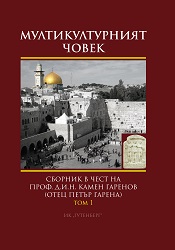
In this study on Angel Karaliichev literary critic Simeon Soultanov wrote that, in order to illustrate his idea of literature that elevates our souls, Emilian Stanev first listed the names of Vazov and Yovkov, and then added the names of Elin Pelin and Angel Karaliichev. "But what does Bilgarian writes mean?" the critic asks and answers: "the more pottery, baggy trousers and woolly caps there were, the more customs were reproduced, the more a writer was one of the people... Maybe, the aspect of the people lives particularly in the Bulgarian national character, too, has different aspects. Numerous faces." (Султанов: 1987:269). In his three stories published in 'Makedonia' newspaper, Karaliichev drew the painting of the multifaceted life of the exiled Macedonian Bulgarians. Defiled and tortured, denigrated and divided, Macedonia eternally remained of the highest standing in Bulgarian hearts.
More...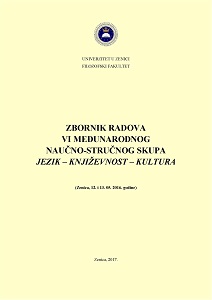
This paper deals with the issue of Islamic linguistic culture in Bosnia and Herzegovina and it explores the use and frequency of certain theological expressions, the oral phrases used by Bosniaks, and the search for their equivalents in Bosnian. The research is targeted at a particular population of Bosniaks; namely, the conversation of practicing Muslims who try to follow the Prophet s.a.w. were analysed both in behaviour and in speech culture. The paper refers to the analysis of the linguistic use of the following Kur'an - Hadith phrases; bismillah, masḥa Allah, insha Allah.
More...
In the present paper, the denotations and slogans used mostly for credit cards in Turkey and Bosnia-Herzegovina are analyzed in a comparative way, and strategies of denotations for the addressed mass are debated.
More...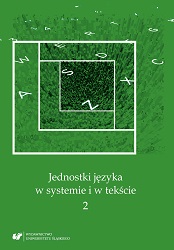
The article concerns the borrowings from the Russian and Polish languages which can be observed in contemporary public discourse between Russians and Poles. The question about the role that these units play in communication space is crucial. The conducted observations indicate that the adapting of foreign cultural values for communication is not random. The collected material allows the conclusion that Russian and Polish borrowings used in social space serve communicating particular intentions and realizations of specific communicative goals. It is significant from the point of view of cultural comparative studies that the Polish-Russian relations are asymmetric from this aspect.
More...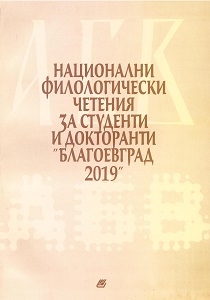
This paper compares the forms and semantics of phraseological units in Bulgarian and Greek, using the head word Fish. The resulting observations of the study allow for the drawing of some linguistic and ethno-psycholinguistic conclusions regarding these two Balkan nations. In analysing the construction of semantic equivalents in the two languages, both complete and partial similarities can be observed. Semantic classification reveals that phraseologisms are personally orientated, and that amongst these, those which characterise qualities, actions, and states evoking negative emotions are seen to dominate.
More...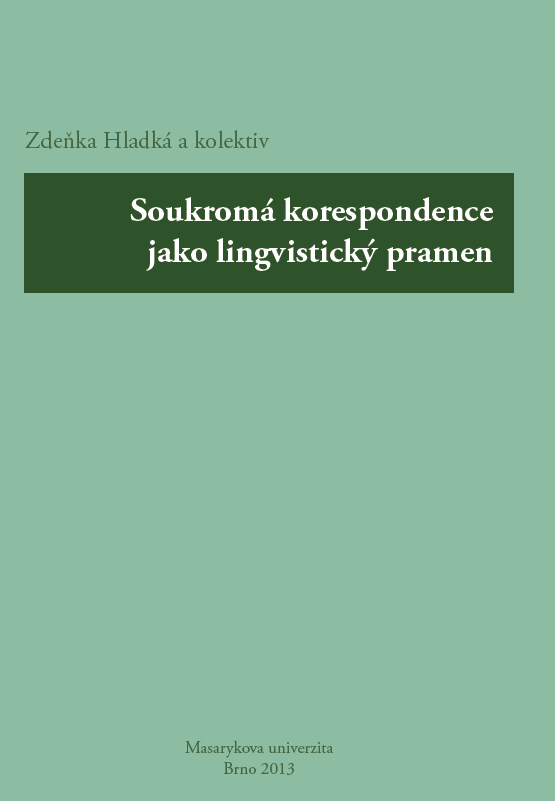
Private correspondence is a valuable source e.g. for the purpose of studying the dynamism of relationships between the standardized form of a language and the non-standard varieties. An analysis orientated on quantitative phenomena and based on the Corpus of Private Correspondence [HLADKÁ a kol. 2005] strives to find out how the features characteristic of spoken language used in informal private letters affect the traditional correlation of written form and standard language, which substandard means of expression are more acceptable and less acceptablein this borderline type of written texts and especially to what extent using substandard means of expression in private correspondence depends on the territorial background of the author. Attention is paid to elements from the spheres of phonology and morphology, the main focus being on the differences between Czech, Moravian and Silesian usage. Results of this analysis also contribute to discussions that are currently taking place in present-day Czech linguistics and sometimes lacking a basis of this kind, namely to discussions concerning the extent to which Common Czech expanding to the eastern part of the Czech territory and also to discussions concerning territorial differences in the spectrum of functions of the standard language. Other aspects are taken into considerationas well, namely sociolinguistic aspects, such as the influence of gender, age and education on the choice of means of expression.
More...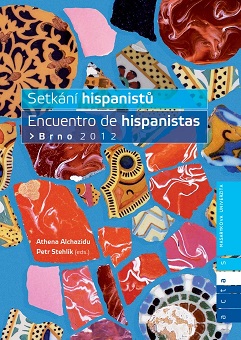
The language contact in Andean region introduced into local Spanish some phenomena nonexistent in standard Spanish. One of the grammatical categories in regional native languages that found their place in Andean Spanish is the evidentiality. The aim of this paper is to analyse some expressions and constructions present in Andean Spanish that have evidential meanings, namely some forms of the verb decir (“say”), the pluperfect, and the synthetic future. Their use is exemplified and put in correlation with functionally similar forms in Quechua. An attempt is made to determine their origin and whether they are grammatical evidentials or just evidential extensions of other categories. In particular, a special attention to an explanation of the basic concepts relevant to evidentiality has been paid in the introductory section. In conclusion, a grammaticalised particle (dice, dizque, “says”) was introduced in Andean Spanish, and the verbal system of Spanish was restructured in order to permit grammatical evidentiality marking; this has occurred as a result of transference from native languages.
More...
The Slavic loanwords in the European Spanish slang can be divided into two groups: in the first one we can find the frequent Slavisms (esclavo, pistola, vampiro) that, apart from the primary meaning, created another one, that is used in slang or that served as the basis for generating new words by means of derivation or as part of Spanish slang idioms. The second group, in turn, contains words and expressions that were introduced into the Spanish slang via the caló language spoken by Spanish Romani.
More...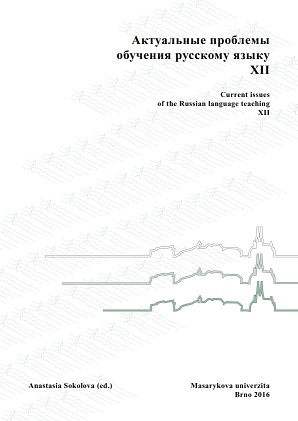
The article deals with the factors that have influence on the linguistic identity formation of a modern Ukrainian. This article attempts to describe the language situation in Ukraine. On one hand, even after the independence proclamation and assertion of status of Ukrainian as the state language, a considerable part of population continues to speak Russian. On the other hand, restriction of the spheres of Russian usage, and insufficient Ukrainian language competence of representatives from various professional fields has led to the the promotion of a general expansion of a phenomenon known as surzhyk. One of the spheres of living, where Ukrainian takes the main position during independence on the territory of almost all state, is the sphere of education. Although, a consequence of this situation in many cases is pupils’ passive mastery of Ukrainian. Even after attempts of realizing serious state educational programs, we realistically do not have hopes to increase the level of Ukrainian mastery. At secondary schools Ukrainian is studied as a subject, but, according to the poll, taken by our scientists, it doesn’t influence on the quality and quantity of communication in Ukrainian in private and public life. Ukrainians of different ages, members of various social groups, and residents of some regions participated in the poll. This poll is empiric base of the given research. One of the results of this poll is that most respondents’ recognized the irrationality of the removal of Russian as a compulsory language from school curriculum. The poll results have helped to determine the peculiarities of linguistic identity of representatives of different generations, and show tendencies to form linguistic identity of Ukrainian pupils.
More...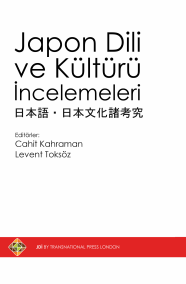
Atasözleri, deyim ve deyişler bir ulusun dünya görüşünü, yaşam tarzını ve değerlerini nesilden nesile aktaran, onları ait olduğu kültürün kalıcı kavramları yapan en önemli dil araçlarından biridir. Söz konusu bu söz öbeklerinde, dolaylı bir anlatım tarzı hakim olup, genellikle benzetme, kişileştirme, metafor gibi anlatıma zenginlik katan bir söz sanatı olduğu düşüncesi yaygındır. Ancak bu klasik görüşün tersine metafor sadece süslü bir anlatım değil, dilin ve düşüncenin vaz geçilmez bir ürünüdür. Lakoff ve Johnson (2015), fiziksel, sosyal ve kültürel deneyimler sonucu ortaya çıkan metaforların, kültürden kültüre çeşitlilik gösterebildiğinden bahsetmekte ve metaforları yönelmeli ve ontolojik metaforlar olarak ikiye ayırmaktadırlar. Ontolojik metaforlar, aynı dili konuşanlar arasında soyut kavramları veya durumları somutlaştırmaya ve anlatımı kolaylaştırmaya yararlar. Ancak, farklı anadil konuşurlarında bazı durumlarda somutlaştırma ve kolaylaştırma çabasının anlam bulanıklığına sebep verdiği gözlemlenmektedir. Bu durumun sebebi ise, aynı kavramın farklı kültürlerde farklı çağrışımlar uyandırması olarak düşünülmektedir.
More...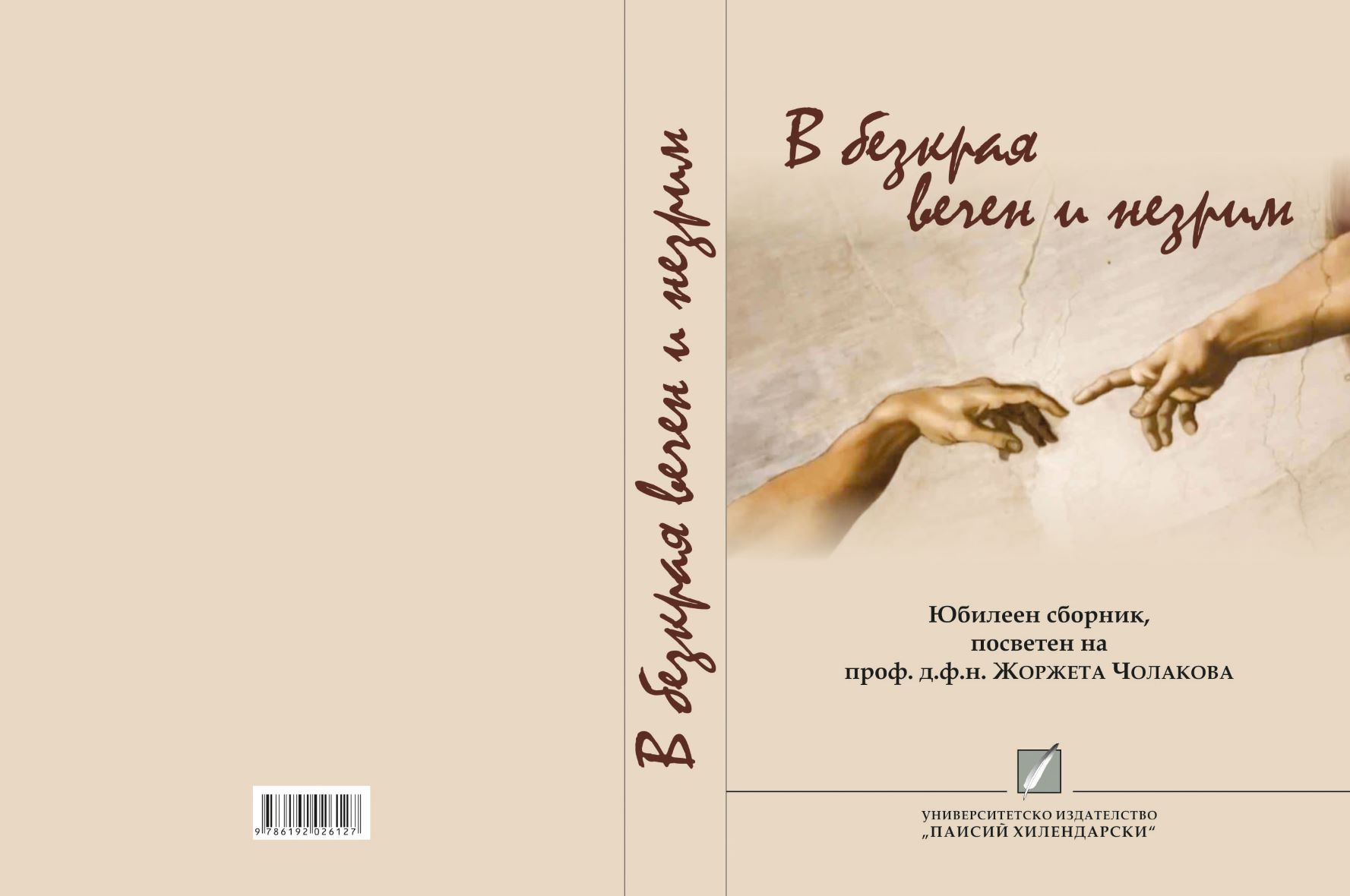
At the beginning of the 19th century, the “father of Slavic philology” Josef Dobrovský published his work entitled Basics of the Old Slavonic Language (1822). In doing so, he did not step on a previously untrodden ground but took as a basis the famous Slavonic Grammar (1619) by Meletius Smotritsky. The present text attempts to compare the point of view of the two authors, separated by 200 years, towards the same literary language – the Church Slavonic. It appears that while Meletius looked forward to the future, Dobrovsky looked back to the oldest state of an already classical language.
More...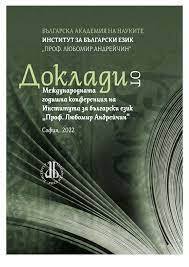
The subject of discussion are some areas of Bulgarian-Polish comparative lexicology, which are insufficiently studied and represent a field for the implementation of interesting research projects. The aim is to describe the state of research in these areas and to present ideas for their expansion. The focus is on two areas – the comparative study of archaization and the colloquialization of vocabulary in both languages. With regard to archaization, examples are given of asymmetries in the field of vocabulary extinction, which present cases in which tokens from one language are obsolete and in another language are in active function. The author assumes that the factors that provide this “second life” of outdated vocabulary outside the territory of the national language are primarily non-linguistic in nature and their comparative study is interesting. The paper also touches on the state of comparative Bulgarian-Polish research in the field of colloquial vocabulary, the more in-depth study of which is necessary due to the current trend towards colloquialization of the language.
More...
The article presents an ethnolinguistic analysis of the vocabulary of calendar rituals as part of the lexicon of the traditional folk culture of the Gorani, Islamized Bulgarians. They form one of the Slavic enclaves in Albania. By professing Islam, the Gorani retain the old Christian calendar, which, however, has been rethought in view of agricultural tasks and general well-being. The dominant part of the ritual terminology is of domestic origin (Stredzima, Korezelyanitsi, Blagoets), with the exception of the names of the Muslim rites (Kurban Bayram, Ramadan Bayram, Nevruz). There are cases of the folk etymology among the chrononyms.
More...
I discuss holistic and partial predicate ontologies, with focus on the realization of static spatiotemporal predicates in Russian and Bulgarian. I follow the distribution of three constructions with dative case marking on the semantic subject. Modern Bulgarian and Modern Russian share only one of them – dative-predicative structures (DPS), while Russian and Old Slavic languages also use dative-infinitive structures (DIS) as the main cue of expressing the meaning of external modality. The third type – hybrid predicates headed by a negative existential – is a bridge construction between DIS and DPS. Hybrid predicates like негде спать (no place to sleep), некого винить (no one to blame) originated in Old Russian as embedded DIS sentences, but drifted towards DPS. They are partly integrated in the ontology of the Modern Russian DPS construction and behave as modal predicatives with a number of deviating features.
More...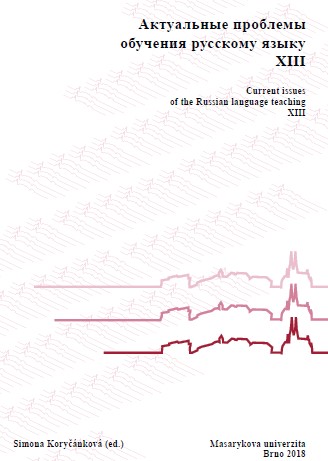
Phrases and their syntactic meanings in Old Russian were very different from contemporary language. In the course of the historical development there were shifts of meaning of some cases. These changes were caused the attempt of the language to express certain relations in a more accurate way. Expressing of certain meanings by simple, non-prepositional cases was gradually reduced; simple cases were replaced by prepositional cases. Historical study of genitive form´s use enables us to hypothesise their original semantics.
More...
The article is aimed at two-year-long research project on linguistic terminology of Russian and Czech, the result being compilation of text corpora for bilingual dictionaries. The project is attempting to cover the “blind spots” existing in the Czech Republic in the field of non-existence of current bilingual dictionaries of terminology. The article describes partial results of the team in the field of dictionary compiling and research on linguistic terms during the first year of performing the project and plans for its second year.
More...
V.K. Trediakovsky regularly turns his translations into different often innovative and visionary experiments. The novel “The adventures of Telemachus” by F. Fénelon is filled by “contemporary” ideas of morality and philosophy while being set in Ancient Greece by abbot and theologian F. Fénelon. Born and raised in a priest family V.K. Trediakovsky analyses and recreates in his “Tilemakhida” not just the original novel, but an image of an image of a whole moral and philosophical system of F. Fénelon making it reflect from Russian worldview on so many different levels - from structural and rhythmic to lexical.
More...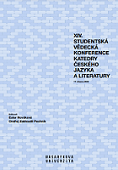
V příspěvku se zaměříme na nářeční posuny v užívání výrazů u dvou generací obyvatel vybraných obcí východní Moravy, konkrétněji v okolí Starého Hrozenkova a Velké nad Veličkou. Text vznikl na základě výsledků bakalářské práce. Nejprve v něm představíme téma a cíl práce, poté se již budeme věnovat nářečí, jeho rozdělení a stručnému popisu zkoumané nářeční skupiny. V analýze praktické části se pak seznámíme s výsledky dotazníkového šetření, na jehož základě popíšeme, zda došlo u starší a mladší generace ve zkoumané oblasti k nějakým změnám v užívání nářečních výrazů.
More...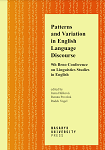
The objective of the present research is to study and analyze linguistic markers of threat utilized in English and Georgian online daily news (The Guardian and The Georgian Times) concerning the COVID-19 pandemic. The study provides synchronic analysis of specific tendencies of utilization of threat techniques in the two languages. The research methodology implies qualitative and quantitative data analyses as well as corpus-based research aiming at determination of peculiarities of threat utterance and its function in persuasive communicative act and revealing similarities and differences between the two languages by contrasting and comparative methodologies.
More...